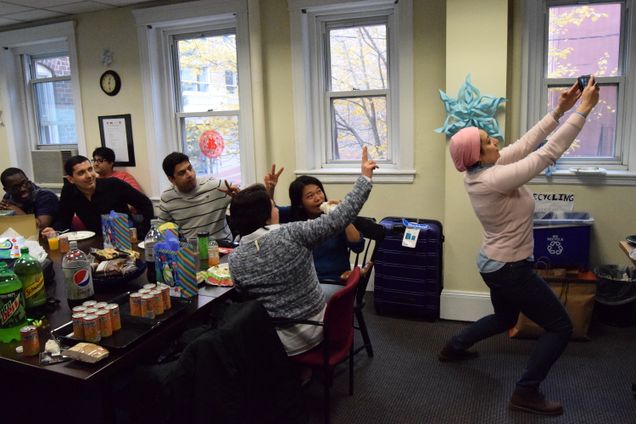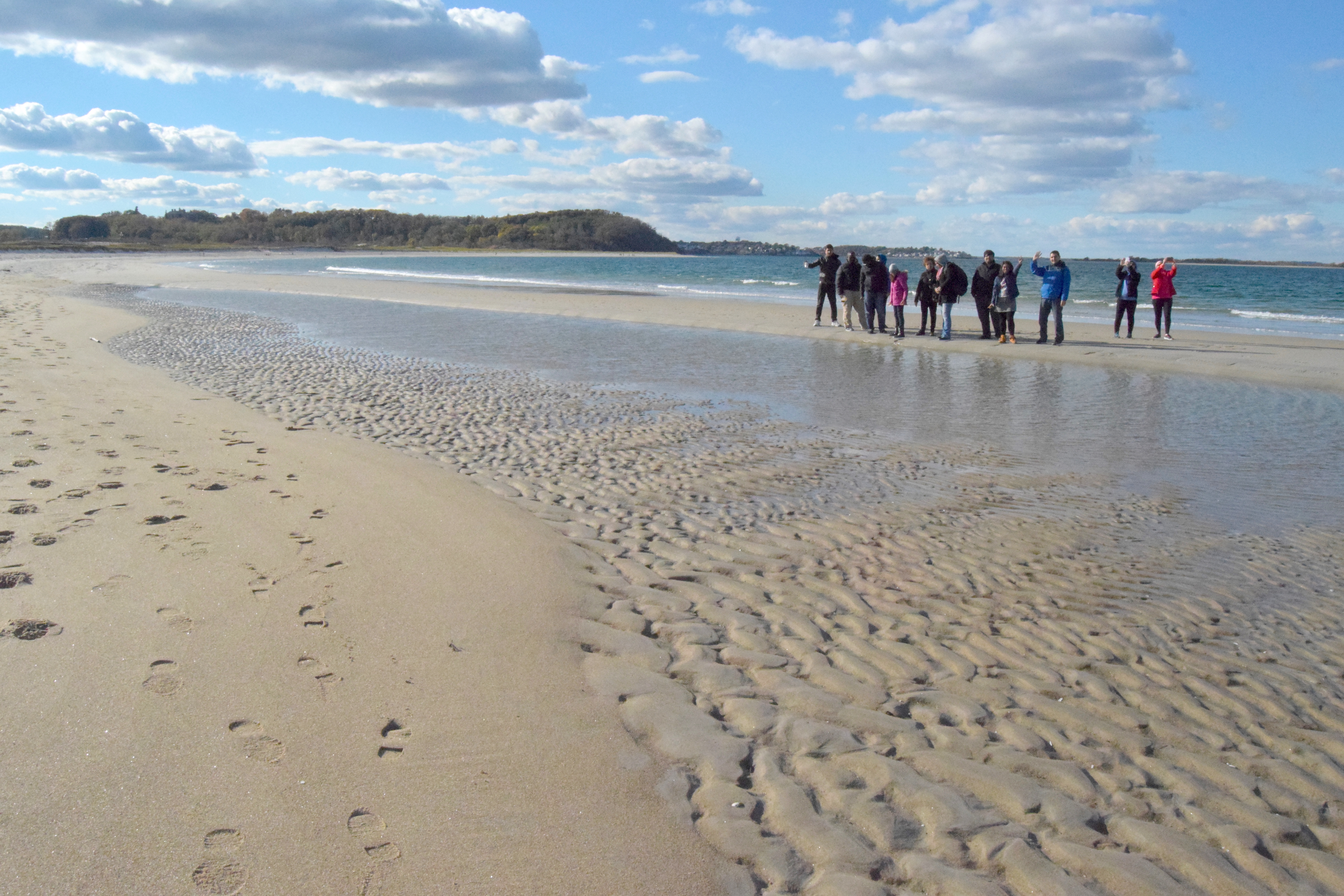Program Updates
Semester-Closing Luncheon and Museum Trip
On Friday, December 11th, all of the Fellows and coordinators, and a few interns gathered for lunch to reflect on our fall semester together. It was a warm event, with gifts, tender statements, and a lovely (and funny) slide show put together by our interns.
Following the lunch, we walked over to the Isabella Stewart Gardner Museum and enjoyed the wide variety of international art that Isabella Stewart Gardner gathered throughout her lifetime.
American Criminal Justice: Eyewitness Identification Reform Program Seminar
 On November 11, we welcomed Stanley Z. Fisher, Professor Emeritus of Law, for a discussion on the “Innocence Revolution” in American Criminal Justice. Professor Fisher previously taught law in Ethiopia, and he came to Boston University in 1968. He has practiced in the Boston area as a juvenile defender, a prosecutor, and a public defender.
On November 11, we welcomed Stanley Z. Fisher, Professor Emeritus of Law, for a discussion on the “Innocence Revolution” in American Criminal Justice. Professor Fisher previously taught law in Ethiopia, and he came to Boston University in 1968. He has practiced in the Boston area as a juvenile defender, a prosecutor, and a public defender.
Professor Fisher described the “innocence revolution”, which refers to the use of advanced technology and DNA testing as evidence in criminal cases, sometimes to exonerate people already convicted and serving prison sentences. Much of the ensuing discussion focused on Fellows’ perceptions of the American criminal justice system and descriptions of criminal justice in their home countries.
Professor Fisher answered questions related to gun violence, school shootings, sexual assault, plea bargains, capital punishment, and police brutality, among other topics. It was a vibrant discussion.
Professor Fisher’s profile can be accessed here: https://www.bu.edu/law/faculty/profiles/bios/full-time/fisher_s.html
U.S. Foreign Policy Seminar
 On Wednesday, November 4th, former U.S Ambassador and BU Professor Robert Loftis joined Humphrey Fellows for a lecture and discussion on U.S. foreign policy. Professor Loftis began by summarizing the history of America’s deep engagement with other countries, most of which has been focused on national security.
On Wednesday, November 4th, former U.S Ambassador and BU Professor Robert Loftis joined Humphrey Fellows for a lecture and discussion on U.S. foreign policy. Professor Loftis began by summarizing the history of America’s deep engagement with other countries, most of which has been focused on national security.
Ambassador Loftis also explained that, in all of its foreign policy decisions but especially in the Middle East, the U.S. has to navigate a complex web of contradictory interests, expectations, and possible consequences. No matter which path the U.S. takes, there will always be disapproval and a sense of betrayal on the part of one country or another. There is no single policy that can work for every situation, and policy often has to be made on a case-by-case basis.
Professor Loftis fears that the U.S. intervening again in the Middle East would have terrible consequences for both the U.S. and Middle Eastern countries. As an outsider, the U.S. can help by offering financial support, training, and other means of assistance—but that citizens and leaders in the Middle East should take the lead in resolving conflicts.

Ambassador Loftis also used a J-curve to illustrate the process a country undergoes when transforming itself into a democracy. Such countries first go through a period of instability as they try to figure out how to fit democracy to their traditional values. Countries with underlying values and systems favorable to democracy do not experience such severe instability as others, but all go through a period of struggle. Khaing, our Fellow from Myanmar, noted that this struggle is currently underway in her country.
For all of the Fellows, it was an engaging experience discussing foreign policy with a former U.S. Ambassador and distinguished BU professor.
The Role of Campaign Commercials in Electoral Politics Seminar
 On Wednesday, October 21st, Professor of Mass Communication John Carroll presented on the media’s role in U.S. presidential campaigns. Professor Carroll previously served as executive producer of news programs at WGBH-TV.He has also written extensively for The Boston Globe and Adweek magazine, and has been a regular commentator on WBUR-FM and National Public Radio.
On Wednesday, October 21st, Professor of Mass Communication John Carroll presented on the media’s role in U.S. presidential campaigns. Professor Carroll previously served as executive producer of news programs at WGBH-TV.He has also written extensively for The Boston Globe and Adweek magazine, and has been a regular commentator on WBUR-FM and National Public Radio.
Professor Carroll outlined the complex American electoral process, focusing especially on primaries and caucuses. He explained the “retail politics” that candidates practice in states with early caucuses and primaries such as Iowa and New Hampshire. The then focused his lectureon television and social media, emphasizing the growing role of social media in election coverage and its powerful impact on voters’ perceptions of candidates.
Professor Carroll cited American journalist AJ Liebling in explaining that the press’s function is to inform, but its role is to make money. This tension can be seen in the way that major media outlets tend to focus on top-polling and top-fundraising candidates. This creates a tiered system in which some candidates receive all the attention, and others hardly any. Many lower-tier candidates feel they have to make sensational statements in order togain the public’s attention.
The Fellows appreciated Professor Carroll’s clarification of the electoral process and his description of how both mainstream media and social media influence it.
Autumn Excursion 2016: Ipswich, Massachusetts
On October 16th, the Fellows, coordinators, a few host families, advisors, interns—and even two Fulbright Fellows currently studying at BU—traveled to Ipswich, Massachusetts for a day of apple picking, a New England-style clambake, and a stroll on Crane Beach.
Ipswich is a small town of 13,000 located on the North Shore, the coastal area between Boston and New Hampshire. The North Shore is known for its rocky coastline, wetlands, beaches, and natural harbors. It is also an important historical, cultural, and economic region of Massachusetts, which has been prominently featured in the literary works of Nathaniel Hawthorne, H. P. Lovecraft, T.S. Eliot, and Robert Lowell, among others.
We began our excursion with a tour of Russell Orchards, a century-old fruit farm and winery that has been owned and operated by the Russell family for the past two decades. Our mode of transport across this 120-acre farm took place by hayride—first out to the apple trees, where each of us picked a bagful to take home, and then to an area where farm animals are raised. Along the way, Patrick Russell provided an informative overview of farming in New England.
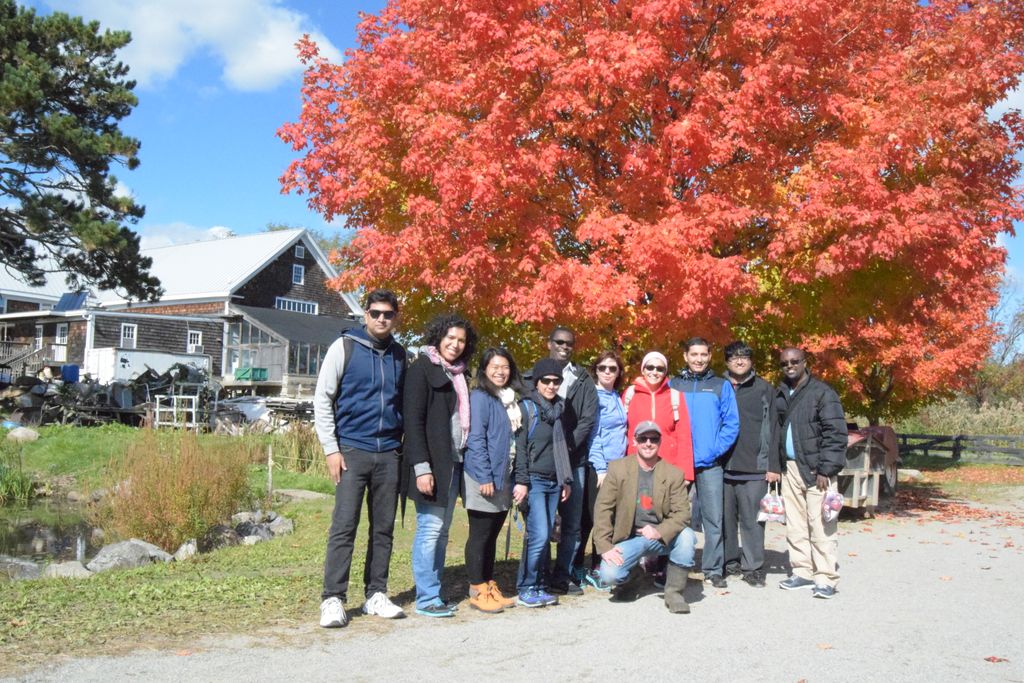
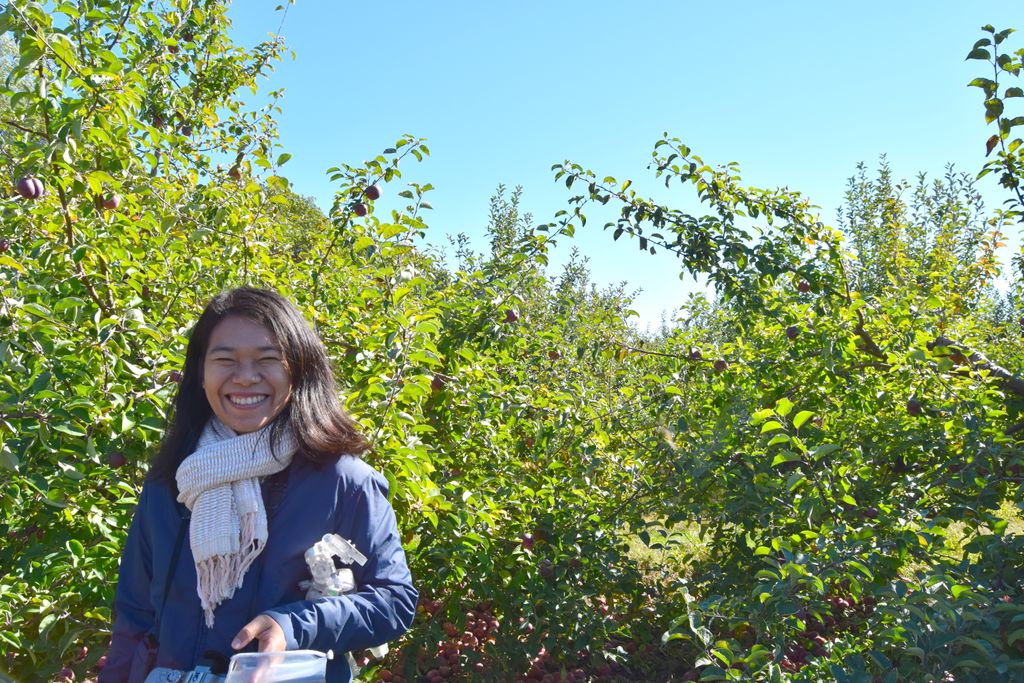
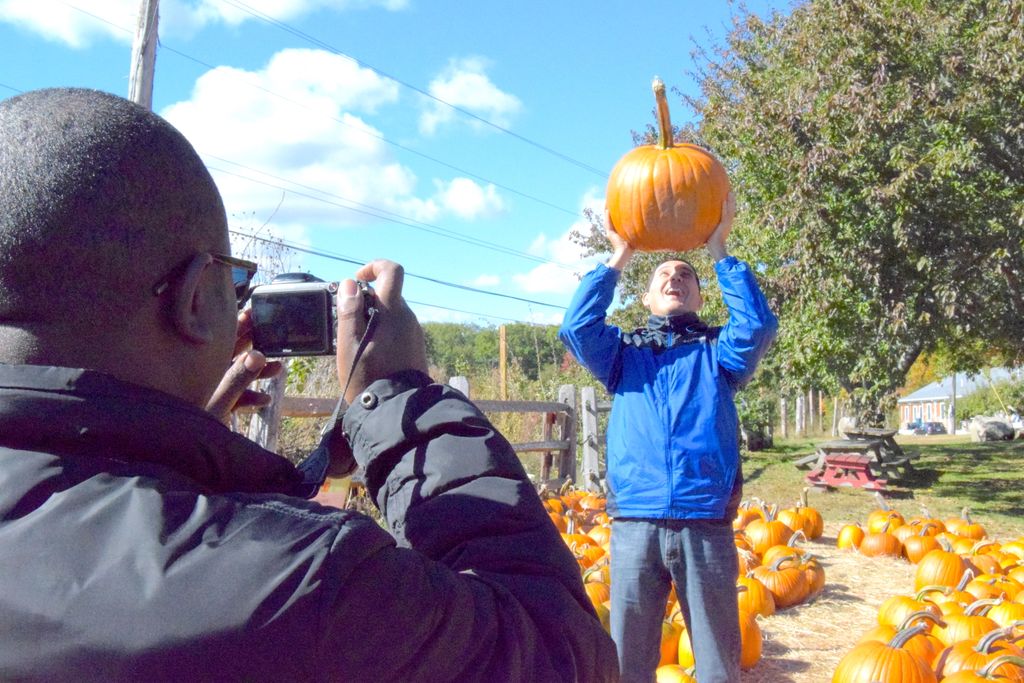
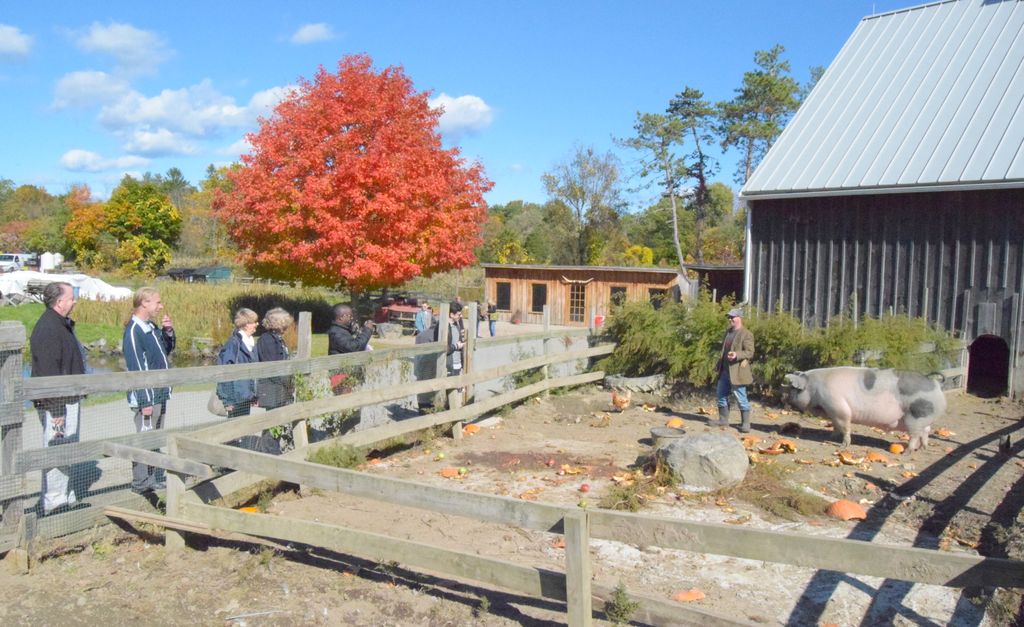
After a bit of shopping in the orchard store, we headed off to the Ipswich Clambake restaurant, where some Fellows enjoyed their first-ever taste of fried, fresh New England seafood. Aly Jafferani of Pakistan and Mounia Diyane of Morocco said it was the best meal they’d had in the U.S.!
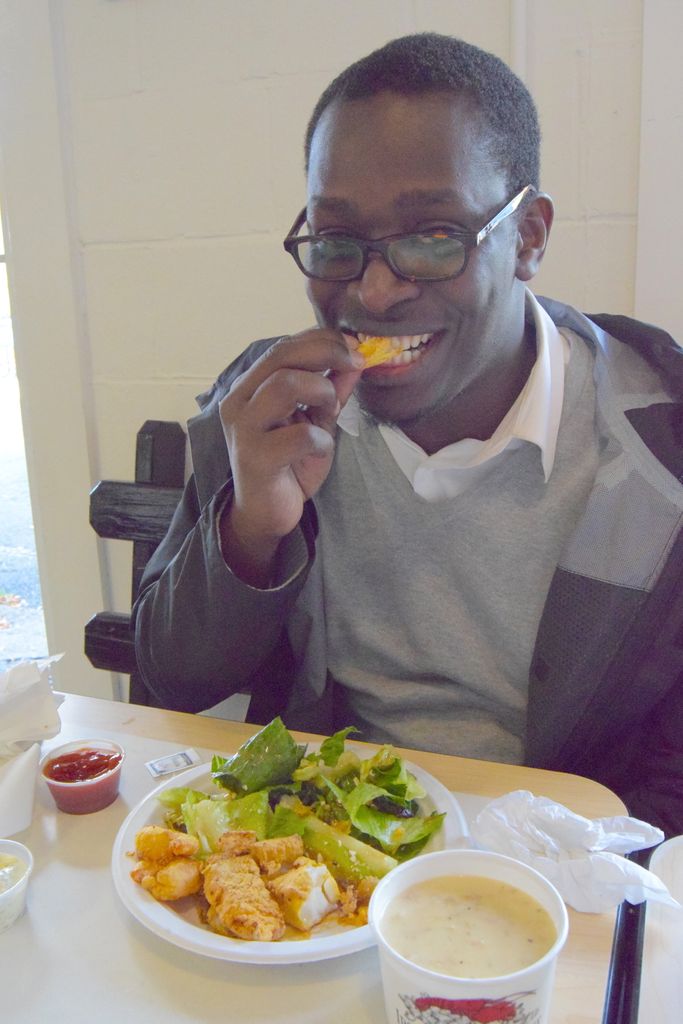
We then visited Crane Beach, a 1,234-acre conservation and recreation property that features a four-mile long beach, sand dunes, and a pine forest. Crane is among the world’s most important nesting sites for piping plovers, an endangered bird that inhabits the Atlantic coast of the U.S. and Canada.

Strolling along this large, pristine beach was a wonderful way to conclude our autumn sojourn.
Nadia Daoudi, one of the Fulbright Fellows who accompanied us, shared the following reflection: “My daughter and I felt just like part of the cohesive group of Humphreys Fellows. There was a warm atmosphere, cheerful ambiance, and above all, very good organisation. I hope to share, before I return home at the end of November, another moment like this one.”
Global Leadership Forum 2015
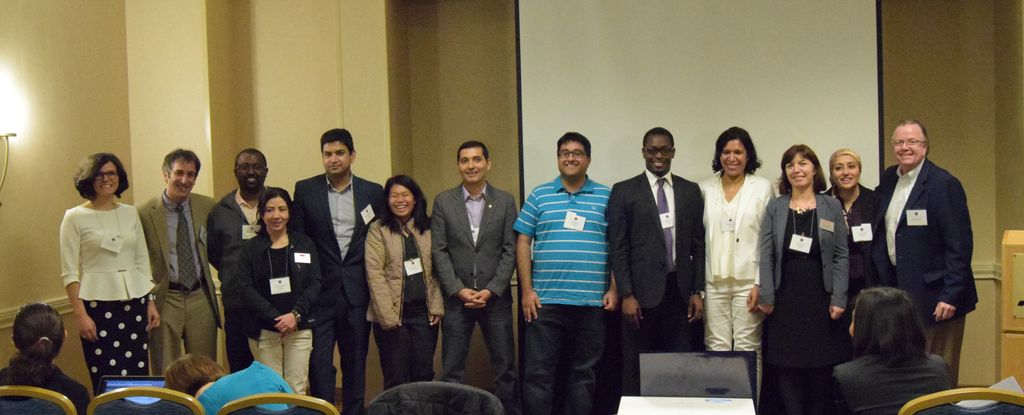
From October 25-29, the BU Fellows and coordinators traveled to Washington, DC and gathered with the cohorts of fifteen other campuses, State Department officials, Institute of International Education officers, distinguished Program alumni, and others for the Humphrey Fellowship Program’s annual Global Leadership Forum.
The theme of this year’s GLF was “Resilience in the Face of Climate Change.” Each cohort presented on climate change as it impacts their respective fields; the BU Fellows presented on “Green Finance”.
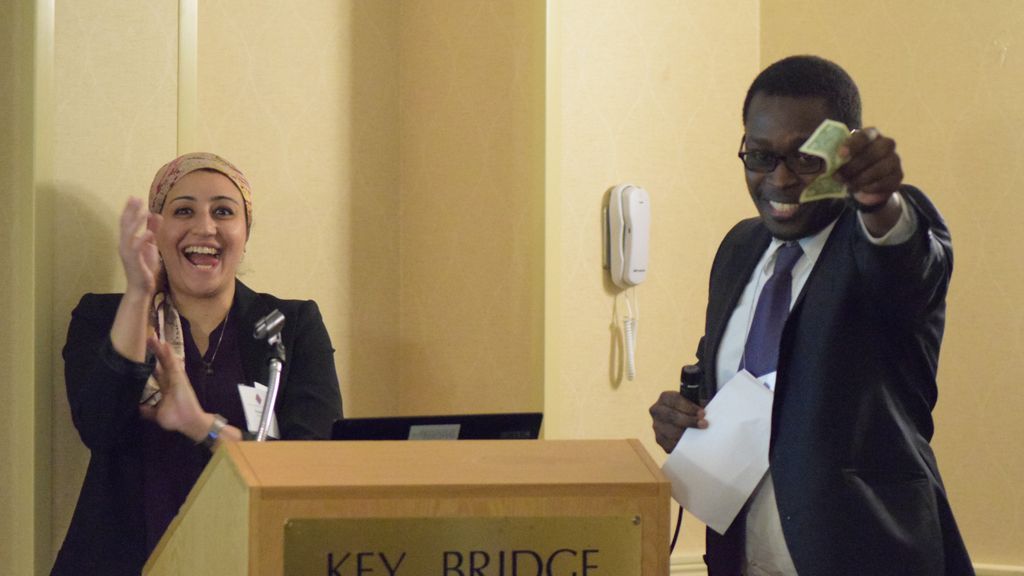
Two distinguished alumni were invited to address the Fellows, and both of them were Humphrey Fellows in the Boston area. Ms. Shanta Nagendram of SkillFocus Consultancy in Malaysia was a Fellow at Tufts University, and Mr. Sujeev Shakya of beed Management in Nepal is one of our most cherished alumni from BU.
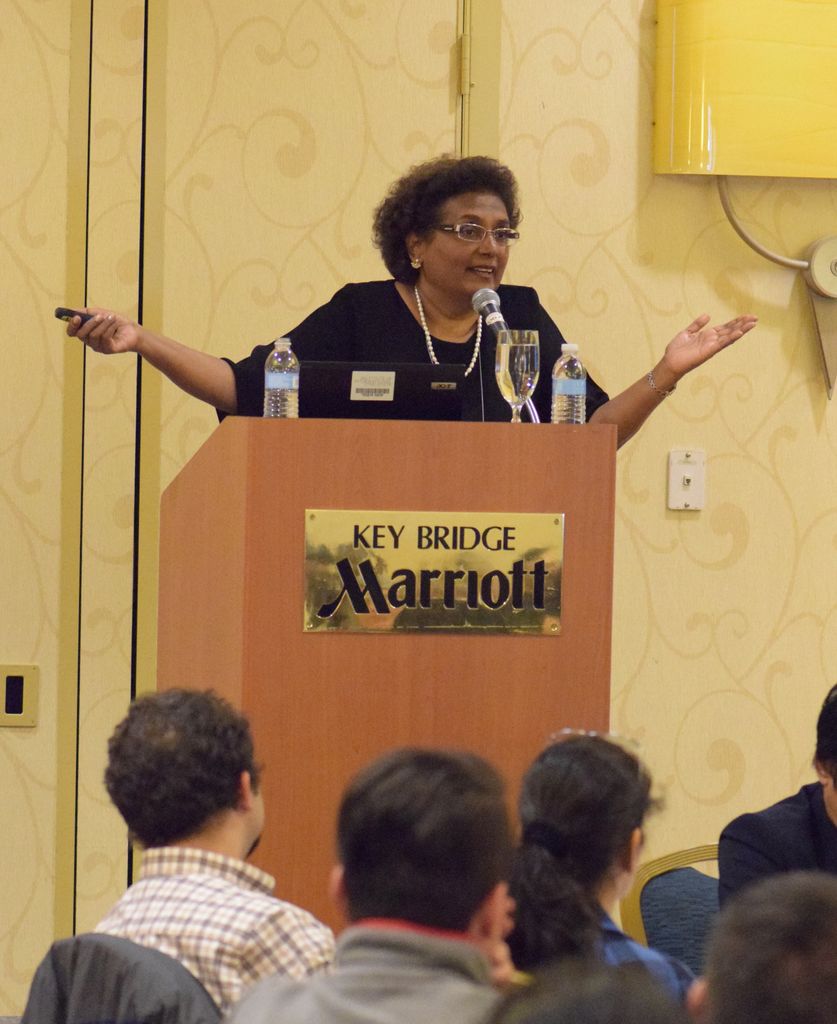
Assistant Secretary of State for Educational and Cultural Affairs Evan Ryan hosted a grand reception at the State Department. Also during the Forum, the Fellows were addressed by Paul Schelp and John Sedlins of the State Department’s Office of Global Educational Programs, Humphrey Program Director Judy Gibson, Humphrey Family Representative (and BU Alumna) Anne L. Howard-Tristani, and others.
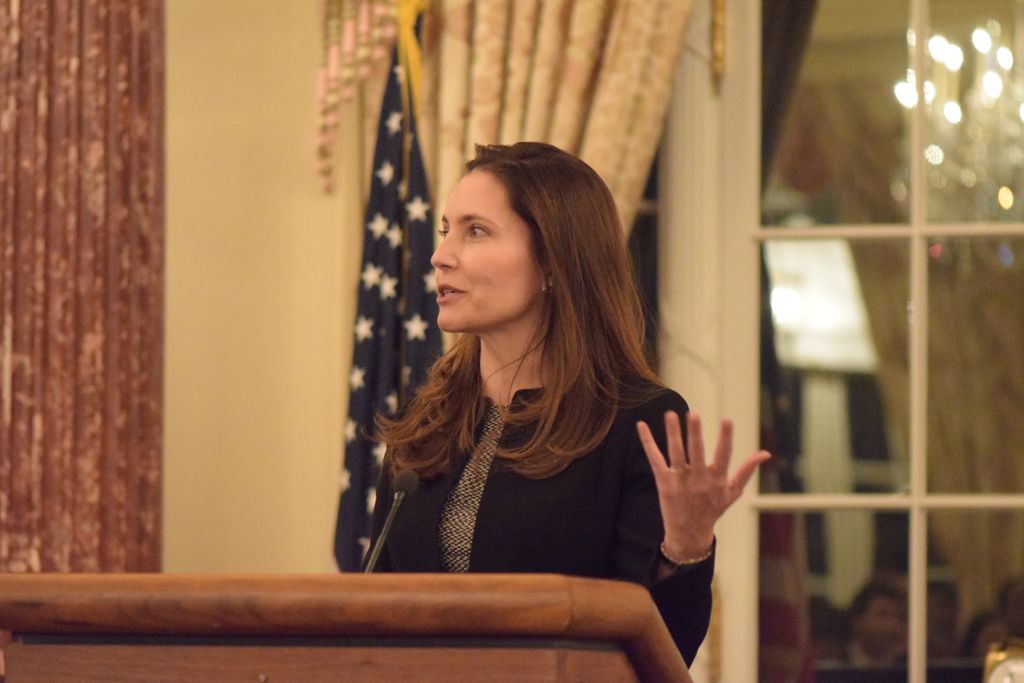
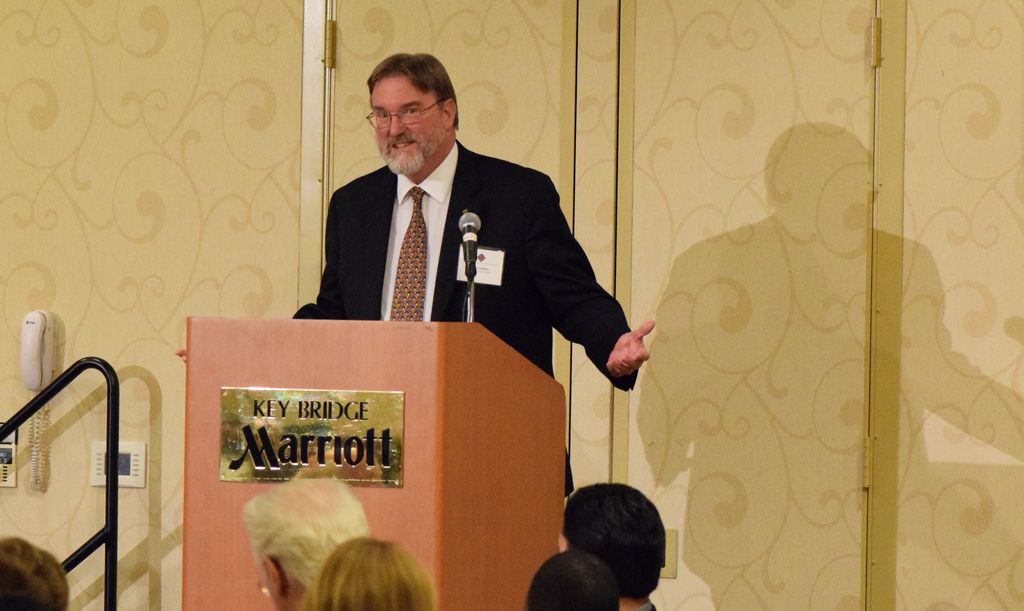
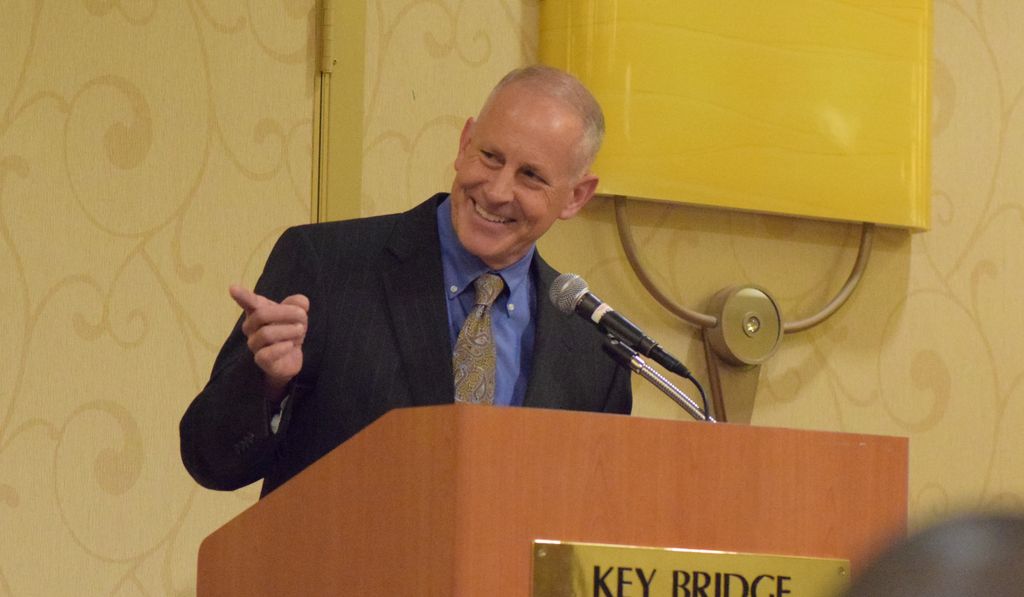
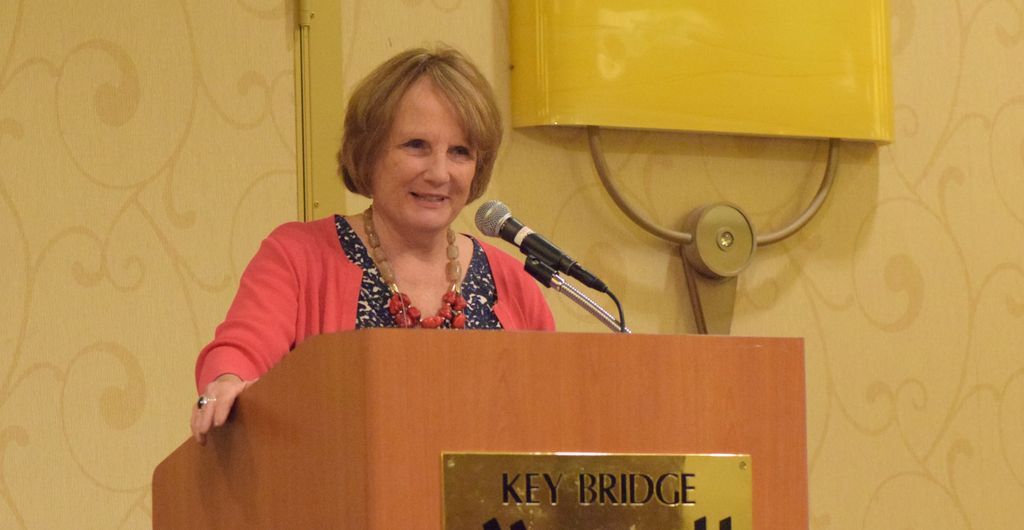
The week ended with a jubilant night of cultural performances and a dance party.
Following the conclusion of the GLF, the BU cohort made professional visits to the World Bank and the State Department. At the World Bank, Speakers Bureau Head Angelica Silvero gave a broad introduction to the Bank’s mission, history, and current activities. Jovita Tamosaityte, a Humphrey Fellow from Lithuania and currently a CSR Strategy Adviser at the World Bank (and associate director of the Our Global Communities project), also attended and provided insight into working at the Bank from the perspective of a Humphrey Alumna. At the State Department, we met with branch chiefs and staff of the Youth Programs Division and Office of English Language Programs. They each provided introductions to those branches of the Bureau of Educational and Cultural Affairs and then engaged in discussions with the Fellows about activities in their respective countries and possibilities of future collaborative endeavors.
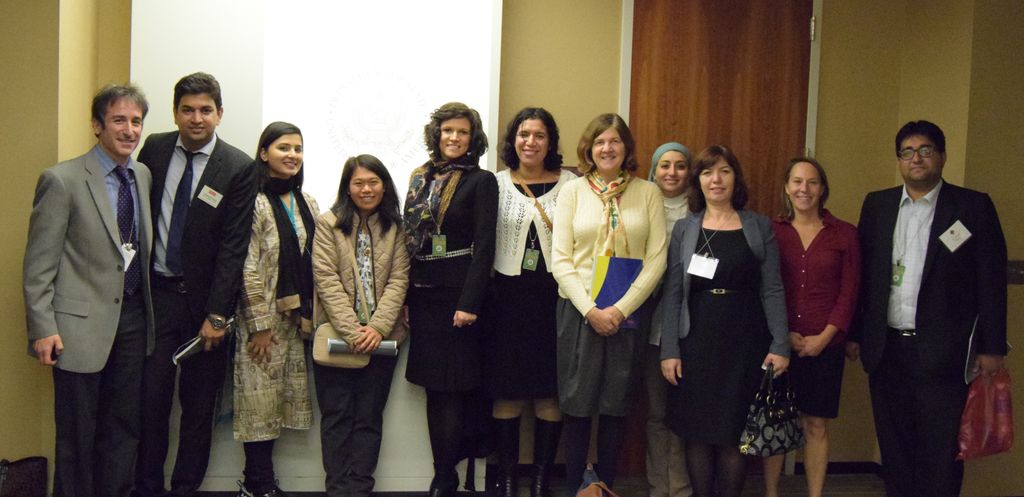
2016 Dean’s Reception
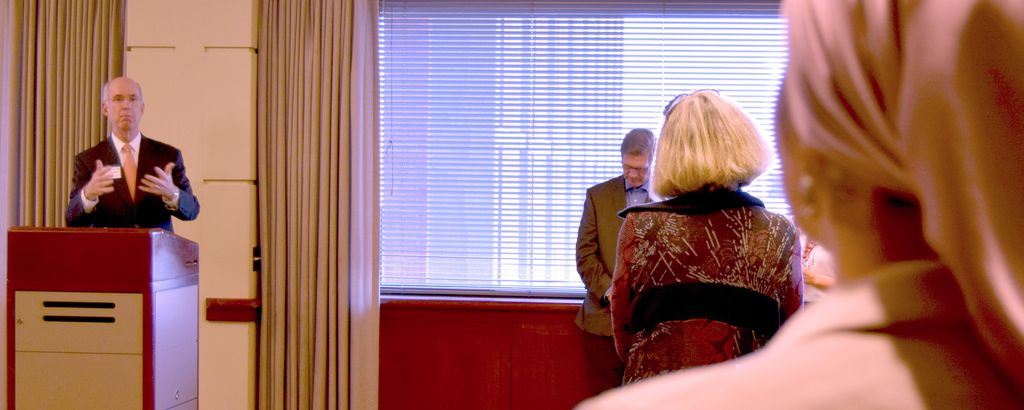
On Wednesday, September 23rd, Dean Kenneth Freeman formally welcomed the 2015-2016 cohort to the Questrom School of Business and Boston University. This was the inaugural welcoming of Humphrey Fellows by a Questrom dean, as this year the University shifted the administrative home of HHHP from the Office of the Provost to Questrom.
More than sixty guests including faculty, professional affiliates, host families, and other friends of the Program gathered to honor BU's thirty-seventh cohort of Fellows. Among them were former BU HHHP directors Ksenya Khinchuk, John Harris, and Sonia Parker, Alumna Tetyana Illyash (2012-2013/Ukraine), Bank of America Senior Vice President (and BU Alumnus) Al Petras, SEC Boston Assistant Regional Director Joseph Mick, State Street Global Advisors Vice President Bruce Westgate, and our collaborators in our Associate Campus Partnership with Bunker Hill Community College, Kathleen O'Neill, Wissal Nouchfif, and Zoe Edwards.
Following Dean Freeman's welcome, Associate Professor Jack McCarthy gave his inaugural welcome as HHHP's new director. We were also fortunate that Amy Nemith, Assistant Director of the Global Professional Exchanges Division and Program Lead for the Hubert H. Humphrey Fellowship Program at the Institute of International Education in Washington, DC, was able to align her annual visit with this event, and she addressed the audience as well.
Each Fellow then took the podium and addressed the audience. It was a wonderfully idiosyncratic array of self-introductions, all engaging and brimming with excitement about the goals, objectives, and as yet undiscovered possibilities of the year ahead. The Fellows also expressed appreciation to the staff and interns who have supported their transition to BU and the U.S. since they arrived in late August.
We are grateful to all of our friends who came out to join us in welcoming this year's Fellows, and we look forward to a great year together!
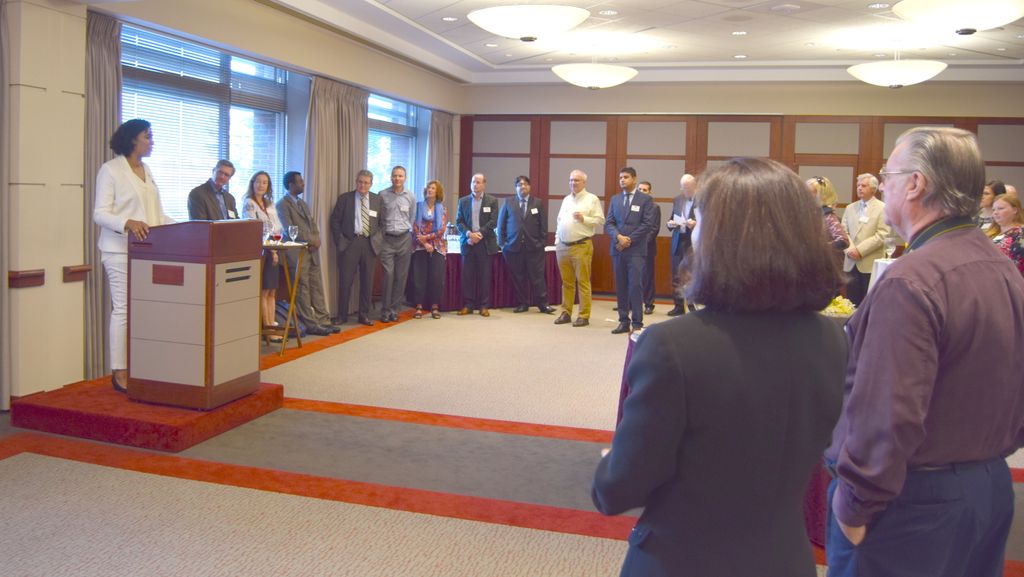
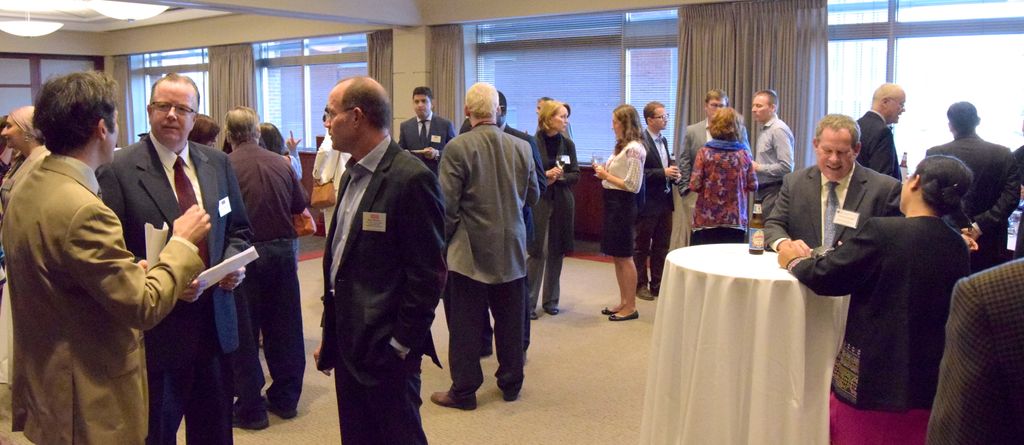
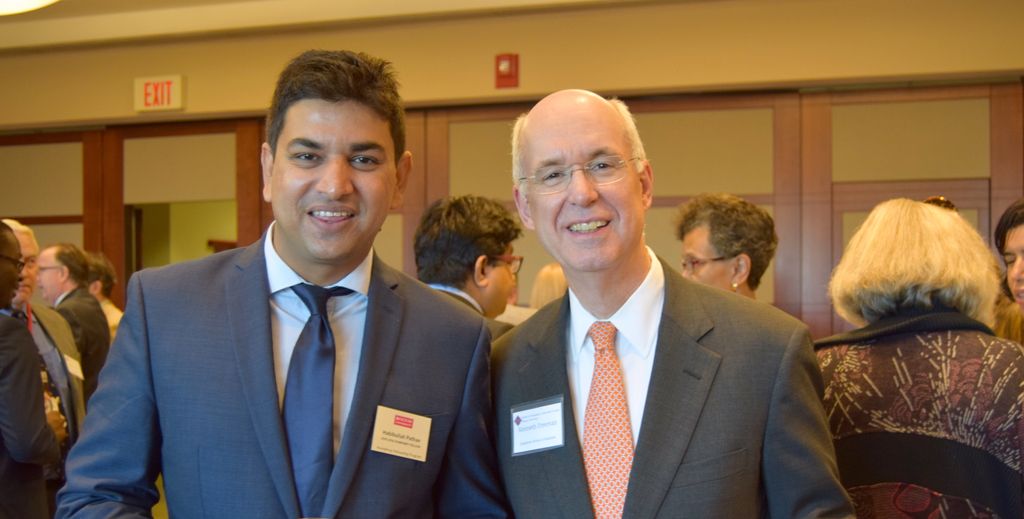
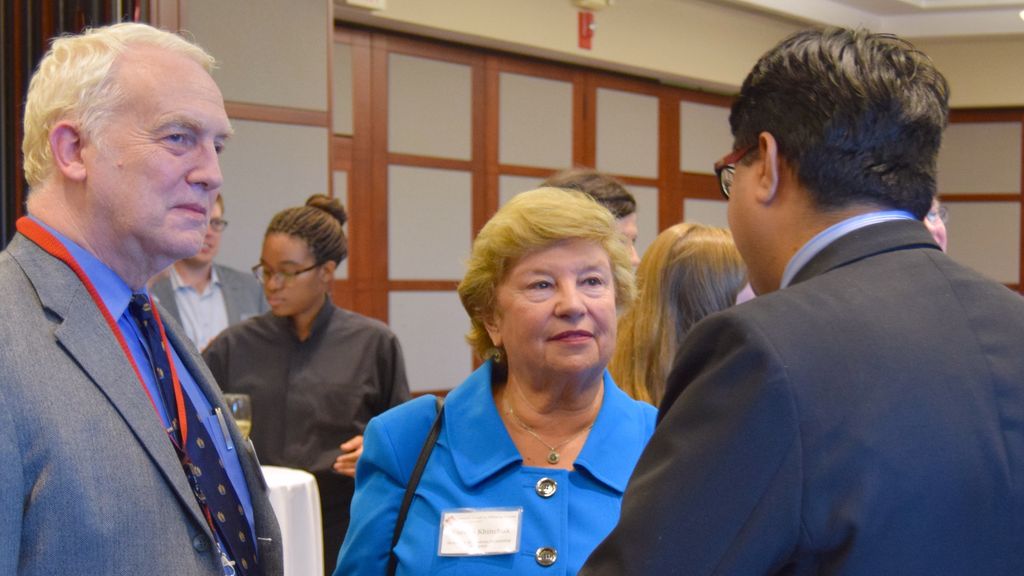
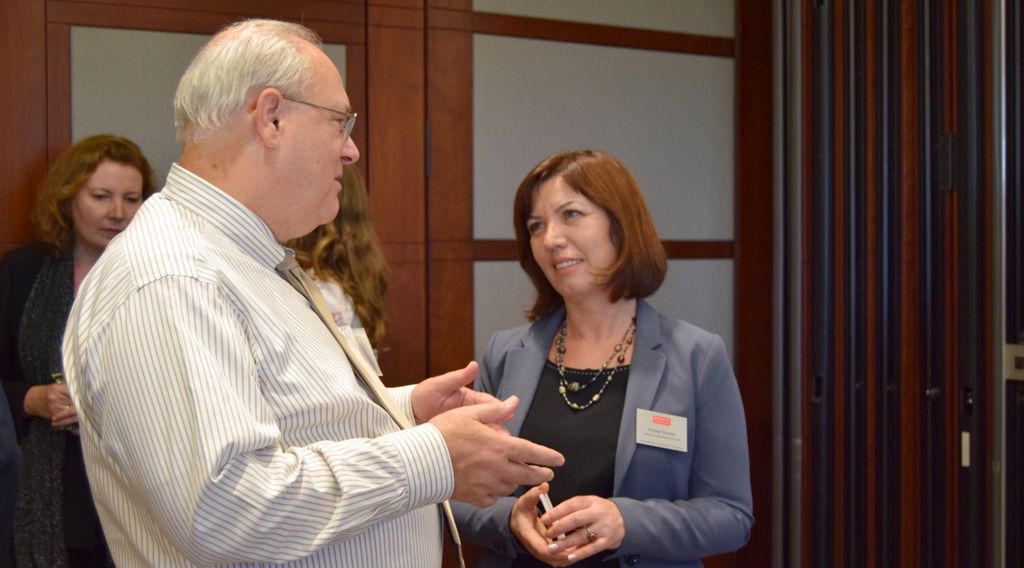
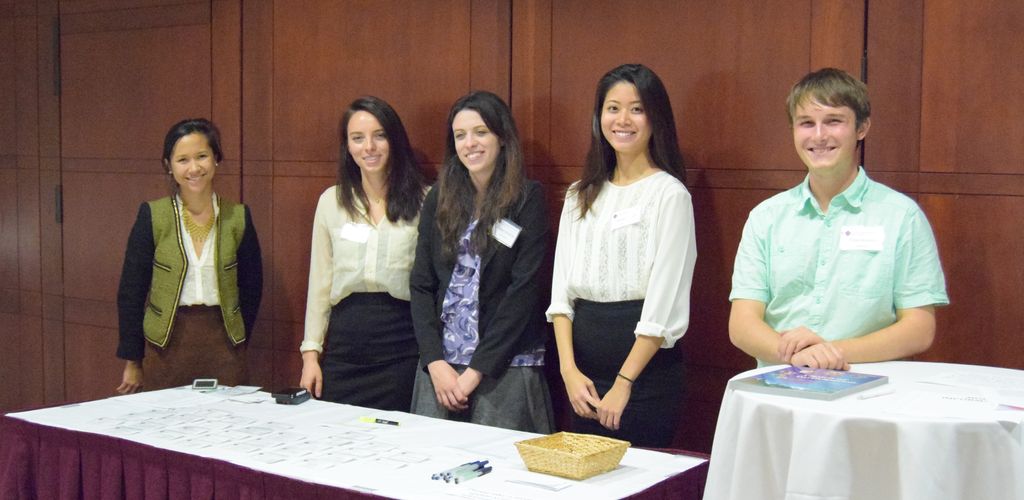
Welcome to Jelena Durkovic, new HHH Program Manager
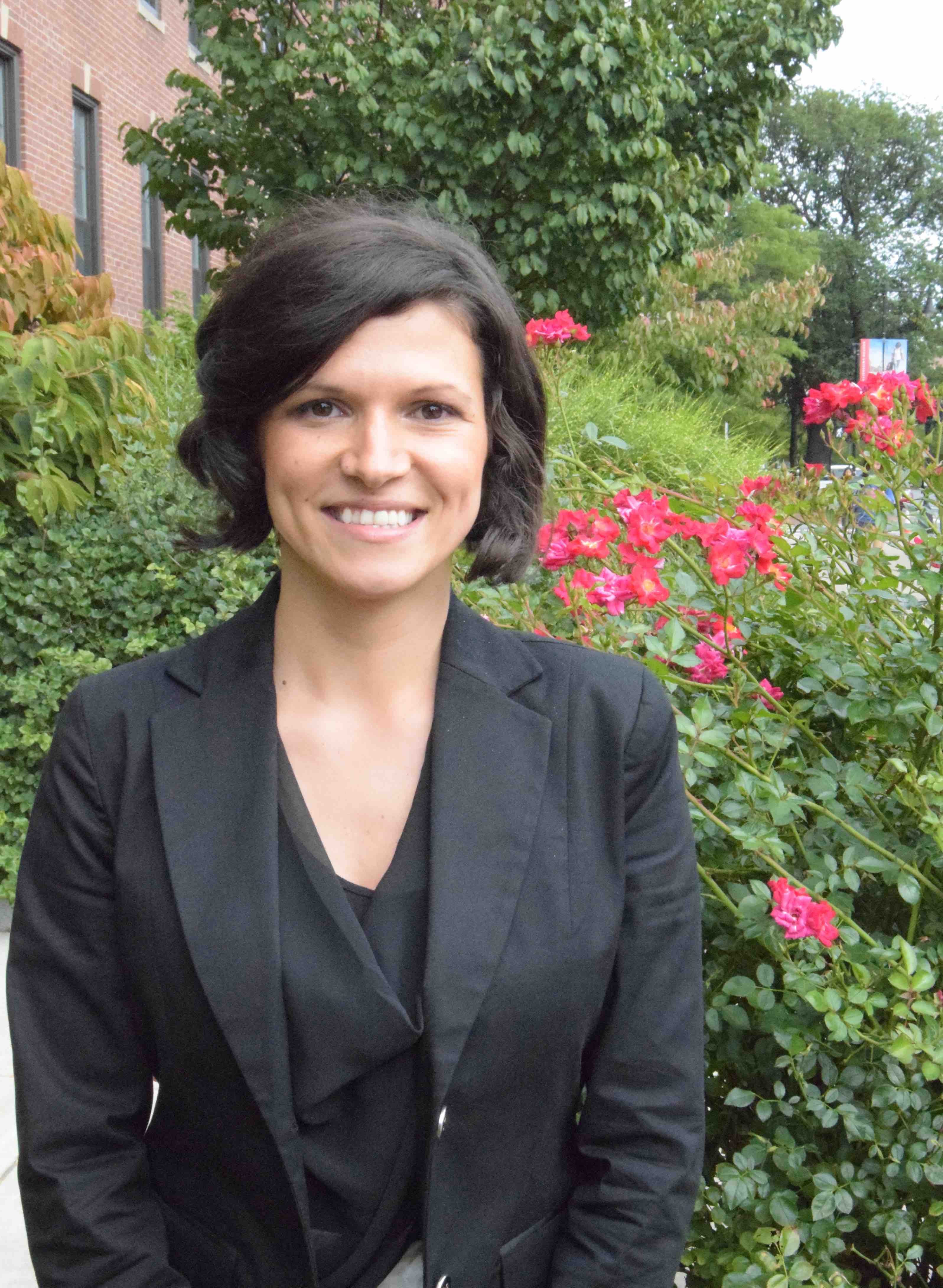 In September 2015, Jelena Durkovic joined the Humphrey Fellowship Program at Boston University as Program Manager. Previously, Jelena served as Staff Coordinator within the Pre-Professional Advising Office at the College of Arts and Sciences at Boston University. While at the Pre-Professional Advising Office, she worked with the department to serve the needs of Boston University students, alumni, and prospective students who are either on a Pre-Health or Pre-Law track and who aspire to further advance their education by going to professional schools.
In September 2015, Jelena Durkovic joined the Humphrey Fellowship Program at Boston University as Program Manager. Previously, Jelena served as Staff Coordinator within the Pre-Professional Advising Office at the College of Arts and Sciences at Boston University. While at the Pre-Professional Advising Office, she worked with the department to serve the needs of Boston University students, alumni, and prospective students who are either on a Pre-Health or Pre-Law track and who aspire to further advance their education by going to professional schools.
Jelena's full bio may be accessed in the About section of this website.
2015–2016 Orientation Retreat at Sargent Center for Outdoor Education
From August 21–23, the new cohort of Humphrey Fellows, the coordinators, and one intern headed up to Hancock, New Hampshire for a three-day orientation retreat at the Sargent Center for Outdoor Education.
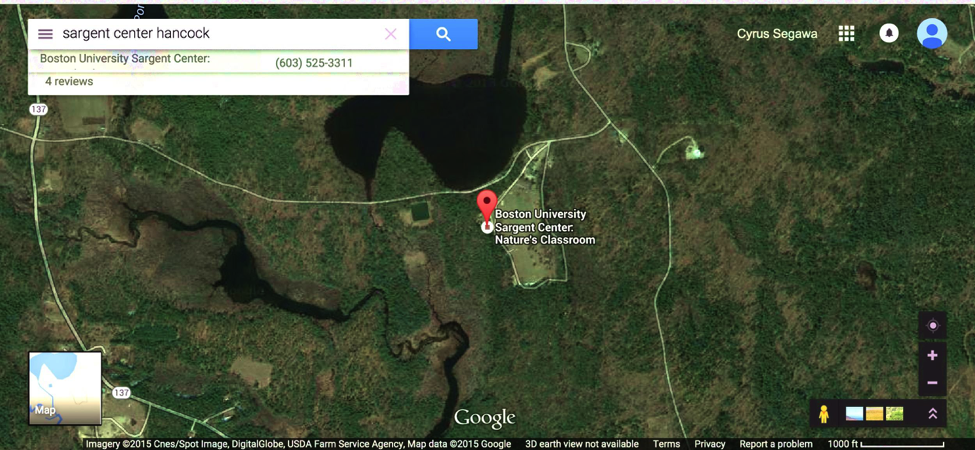

The Sargent Center was founded in 1912 by Dudley Allen Sargent (1849-1924), an early pioneer of physical education in the U.S. The 800-acre facility has run educational programs for over a century and was acquired by BU in 1932. It offers dormitory accommodations, a cafeteria, conference rooms, hiking through a 700-acre virgin forest, and swimming and canoeing in the 60-acre Half Moon Pond. BU Fellows have spent their fall orientation retreat at the Sargent Center since the 1980s, when Sonia Parker and John Harris ran the Program together.
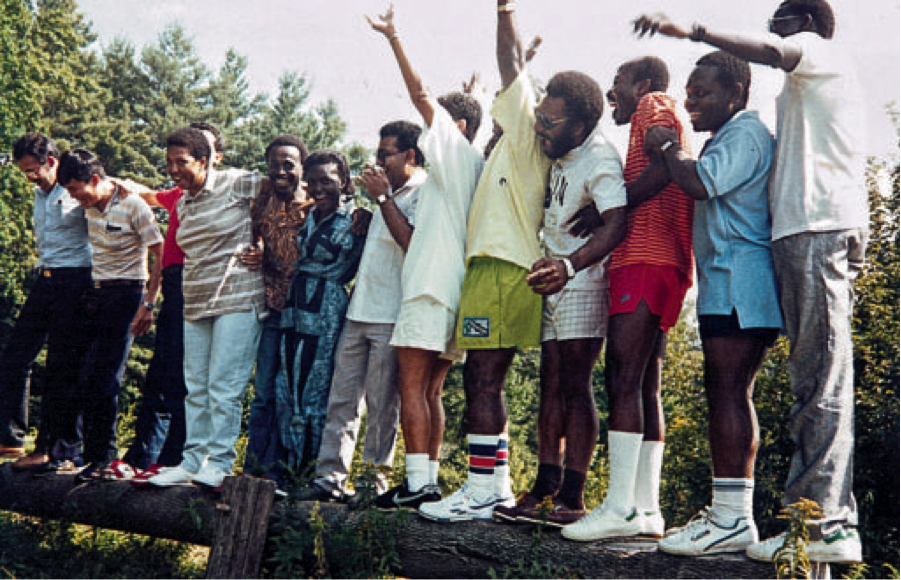
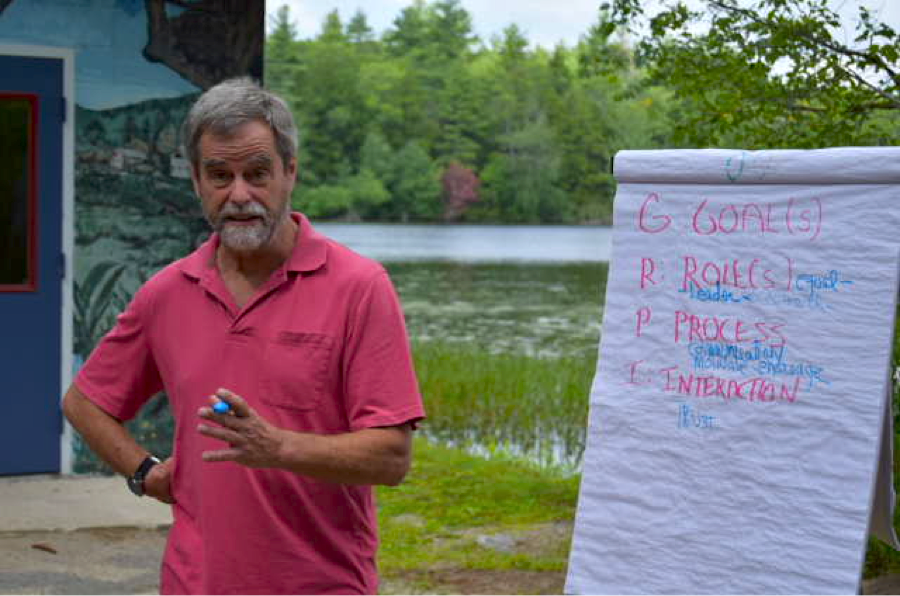
This year, we invited expert facilitator (and SED alumnus) Dr. Chris Roland of Bridging Distance to lead the Fellows in a series of activities and reflections that supported the cohort to build trust and friendship with one another, and to contemplate the coming year together.
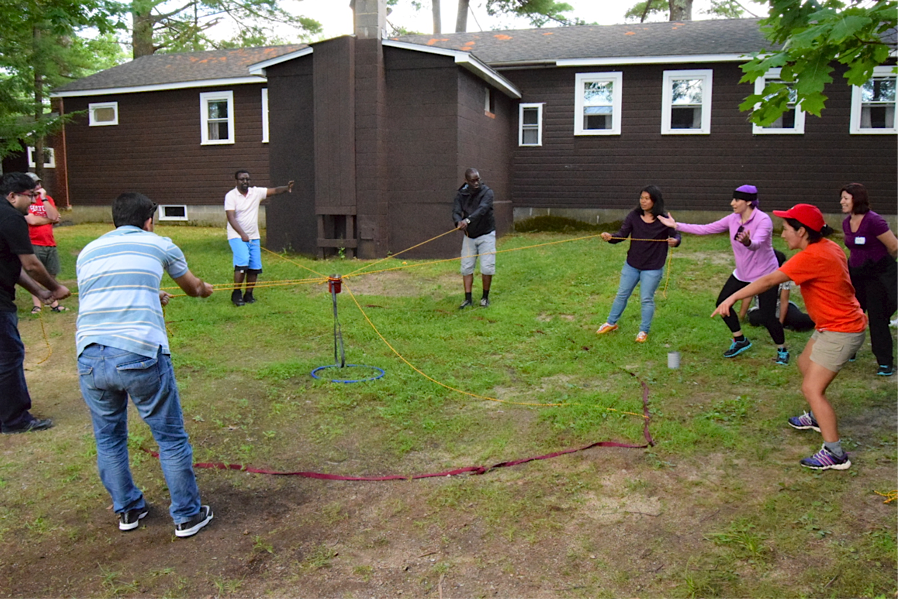
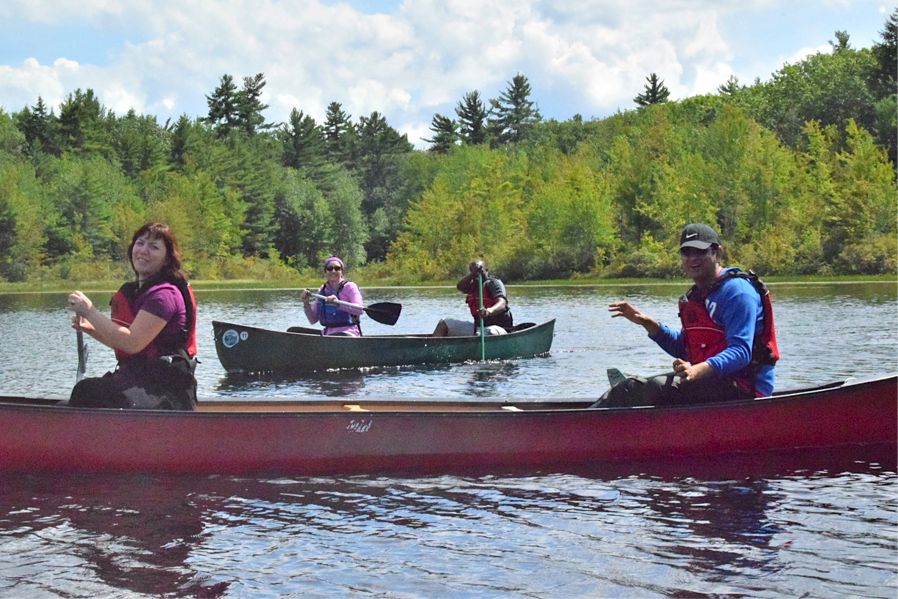
The weather held up for us, and the evenings were full of song, dance, and laughter as we sat around a campfire under a gorgeous canopy of stars.
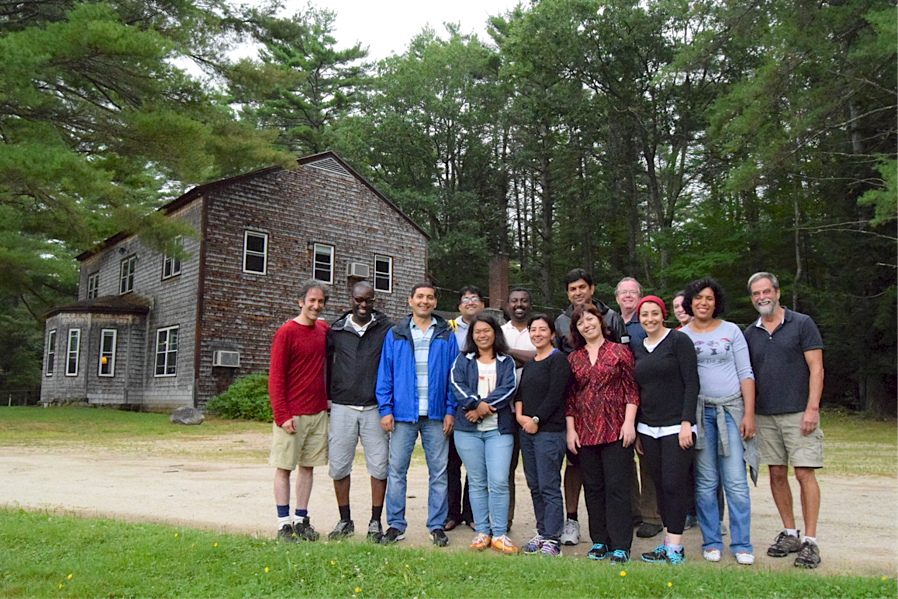
It was a warm, fun, productive way to begin our pivotal year together.
New Director and Administrative Home for the Program

Dr. John F. (Jack) McCarthy was named in July 2015 as the Director of the Humphrey Fellowship Program at Boston University, where he has led a yearlong seminar series on leadership for the past nine years. He is an Associate Professor of Organizational Behavior at the Questrom School of Business at Boston University and also serves as the Director of the Executive Development Roundtable, a major consortium and research center on leadership. In addition, he is the faculty director for the school’s core undergraduate Organizational Behavior course, where he and colleagues have received major grant funding from the university in recognition of ongoing innovations in teaching and learning. With research interests in leadership, creativity, organizational change and global sustainability, his work has been published in leading journals and he is a frequent speaker and consultant in the U.S. and abroad on leadership and leading positive change.
Dr. McCarthy’s full profile is posted in the About section of this website.
 With Dr. McCarthy’s appointment, the Humphrey Fellowship Program’s administrative home was moved from the Provost’s office to the Questrom School of Business. This shift brings a world of new possibilities, as the Questrom School is broadly distinguished by its longstanding success in preparing the next generation of innovators and leaders who create value for the world.
With Dr. McCarthy’s appointment, the Humphrey Fellowship Program’s administrative home was moved from the Provost’s office to the Questrom School of Business. This shift brings a world of new possibilities, as the Questrom School is broadly distinguished by its longstanding success in preparing the next generation of innovators and leaders who create value for the world.
 The school was founded in 1913 as the College of Business Administration—and right from the start, the focus was global: the first academic program consisted of coursework in Advertising, English, and Spanish. Pictured left is the College of Business Administration’s new home in 1916. This Copley Square building was renovated in order to accommodate the College’s growing student body.
The school was founded in 1913 as the College of Business Administration—and right from the start, the focus was global: the first academic program consisted of coursework in Advertising, English, and Spanish. Pictured left is the College of Business Administration’s new home in 1916. This Copley Square building was renovated in order to accommodate the College’s growing student body.
In March of 2015, the School’s name was changed from the School of Management to the Questrom School of Business. It was named for alumnus Allen Questrom, a former CEO in the retail industry who, with his wife Kelli, donated $50 million to Boston University. Swapping “business” for “management” reflects the former word’s greater scope, representing the vast and vibrant range of industries and institutions—from for-profit to nonprofit to enterprises around the world—for which the Questrom School aims to prepare its students.
